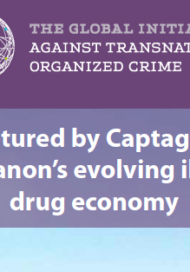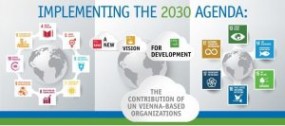Posted on 01 Feb 2016
Drug trafficking remains a viable source of funding for both organized crime groups as well as terrorist groups and belligerents in civil conflicts across the globe. This has strong precedent in the examples of the Taliban in Afghanistan, which is well funded by trafficking in opium, as well as the FARC and ETA in Colombia. Is Syria and the surrounding region facing a similar confluence between organized crime and political actors?
With the new year beginning, Turkish authorities continue seizing illicit drugs related to conflict within the region. On January 13 Turkish national police, in cooperation with the coastguard, reported seizing 2.5 tons of cannabis resin, with captagon headed for Libya. The ship with Bolivian flag and crewed by Syrian nationals was transporting the cannabis resin to destination markets in Western Europe. Turkish authorities have claimed that the ship originally departed from the Syrian port of Tartus.
Such a large amount of cannabis resin being seized at once is usually a modality for a well-established trafficking trajectory (traffickers do not tend to risk large shipments without being secure in the viability of the route). If indeed the ship departed from Syria this presents an interesting trend. While large shipments of cannabis resin have occurred on the Turkish-Syrian (see map) border, container ship trafficking from Syria has a more limited history. Moreover, the type of narcotic is indicative of Lebanese involvement, which perhaps should come as no suprise.
The bekaa valley in Lebanon has a long history of large cultivation of cannabis resin (though small compared to cultivation in Morocco or Afghanistan). Plus with the proximity of the port of Tartus to the Lebanese border transportation would present minimal risk of interception to traffickers. However, the shipment could just as easily have come from Morocco. Recent analysis by the Global Initiative suggests that traffickers are using North Africa for moving cannabis resin from Morocco to open up indirect trajectories into markets in Europe.
However, traffickers would have been entertaining several risks. A ship that is registered in a landlocked country (Bolivia) operating in the eastern Mediterranean in a well-known conflict region would be designated a risk by customs and border police in destination markets.
This seizure, seen in light of further large production of amphetamines in the region, combined the well worn route of Afghan opiates transiting the Balkan route from Afghanistan to destination markets, represents a variety of opportunities and risks for belligerents in the ongoing civil war. Indeed, the fact that at the time of writing in January 2015, the main ports in Syria remain under the control of government forces raises further doubts about the involvement of the belligerents in drug trafficking as a source of funding.
Notwithstanding the questions this and similar seizures raise on their own terms, there are broader and long term implications upon the region and post conflict development.
With conflict continuing within Syria and the wider region, the implications on rule of law and application of law enforcement has been severe and will continue to be so in the mid to long term. The Syrian war should, at some point, eventually transmute to post-conflict situation and the concern is that, as with Libya, Mali and elsewhere, illicit flows and criminal economies will continue to enrich militants who will have little benefit or vested interest in encouraging central state consolidation.
Policy makers within the region and the international community will need to have practical strategies to address the illicit economy in place and ready for implementation beforehand. Otherwise the strength of the rule of law will be severely curtailed and further impact development.
As highlighted above many significant questions regarding conflict and drug trafficking in the region remain. This is also has wider implications on research into organized crime and political actors. Too little is understood about how and where organized crime and political actors (both state and non-state) interact at logistical and strategic levels.
Focusing on Syria specifically new methodologies need to assess the threat presented by drug trafficking occurring in the region, its impact upon conflict, and vice versa as well as the preparation of policy implications in post-conflict Syria and Iraq. The Global Initiative is currently undertaking an in-depth research study on the issue, for publication in the summer of 2016.
Photo: Turkish Authorities seizing cannabis resin from the ship ‘Joudı’, off the coast of Libya.



